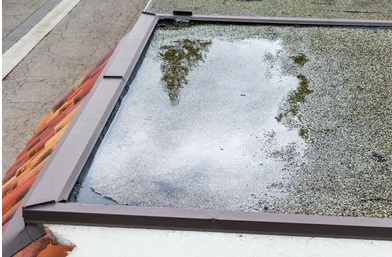All Blogs
Bitumen Paint Varients: Black Bitumen, Green Bitumen, and Solar Reflective Aluminium Bitumen
Bitumen has long been a key commodity in the construction and infrastructure industries, renowned for its durability, water resistance, and adaptability. Whether used in roofing, paving, or waterproofing, bitumen serves as a reliable and effective material for various applications. However, not all bitumen is created equal. Over time, specialized versions of bitumen have emerged, each designed to offer distinct advantages depending on the specific requirements of a project. In this blog, we’ll delve into three prominent types of bitumen: Black bitumen, Green bitumen, and Solar reflective bitumen aluminium. We’ll explore their unique characteristics, benefits, and ideal uses, as well as how they contribute to sustainable construction practices.
Understanding Bitumen Paint
What is Bitumen?
Bitumen, also known as asphalt or tar, is a viscous, black, and sticky substance derived from petroleum or natural deposits. It is often used in construction due to its waterproofing, sealing, and binding properties. While traditionally associated with road paving, bitumen is versatile and can be found in numerous other applications, including roofing, waterproofing membranes, and as an adhesive for construction materials.
Black Bitumen: The Traditional Workhorse
Black bitumen is the most common form of bitumen, primarily used in road construction, roofing materials, and waterproofing systems. Its composition includes a mixture of hydrocarbons, giving it a dense, sticky consistency that is ideal for bonding and protecting surfaces.
Key Characteristics:
Durability:
Black bitumen is known for its long-lasting nature, with a high resistance to weathering and physical wear. Its robust composition allows it to withstand the rigors of traffic, environmental stress, and temperature fluctuations.
Waterproofing:
One of the primary advantages of black bitumen is its excellent water resistance. It forms an impenetrable barrier that prevents water from seeping into surfaces, making it ideal for use in roofing membranes and foundations.
Easy Application:
Black bitumen is relatively easy to apply, especially in its liquid or mastic form. It can be heated and spread across large surfaces, providing uniform coverage and effective sealing.
Ideal Uses:
Road Construction:
Black bitumen is a core material in asphalt for road paving, where its ability to withstand heavy traffic loads and extreme weather conditions is essential.
Roofing:
Flat and low-slope roofs benefit from black bitumen’s water-resistant qualities, as it effectively prevents leaks and moisture damage.
Waterproofing:
Black bitumen is often used in foundations, basements, and other areas where moisture resistance is a priority.
Environmental Considerations:
While black bitumen is durable and versatile, it is derived from petroleum, which raises concerns about its environmental impact. Its production and disposal can contribute to carbon emissions and other environmental hazards. As a result, there is growing interest in more sustainable alternatives, such as green bitumen.

Green Bitumen: A Sustainable Alternative
Green bitumen is an innovative advancement designed to address the environmental concerns associated with traditional black bitumen. This eco-friendly version incorporates sustainable materials and technologies to reduce the carbon footprint of bitumen production and enhance its recyclability.
Key Characteristics:
Recycled Content:
Green bitumen often incorporates recycled materials, such as reclaimed asphalt pavement (RAP) or bio-based additives, reducing the need for virgin materials and minimizing waste.
Improved Durability:
Despite its eco-friendly credentials, green bitumen retains the durability and water resistance that black bitumen is known for, making it just as effective in demanding applications.
Ideal Uses:
Road Paving:
Green bitumen is increasingly being used in road construction, where it can help reduce the environmental impact of infrastructure projects without compromising on performance.
Roofing and Waterproofing:
Like black bitumen, green bitumen can be used for waterproofing and roofing applications. Its sustainable properties make it a popular choice for environmentally conscious builders.
Paving and Infrastructure Projects:
Cities and municipalities are turning to green bitumen for public works and large-scale infrastructure projects as part of their sustainability initiatives.
Environmental Benefits:
There are a range of environmental benefits that green bitumen offers, one of these is the product having a reduced carbon footprint. By incorporating recycled materials and utilizing energy-efficient production processes, green bitumen can significantly lower the carbon footprint of construction projects. Furthermore, Green Bitumen improves waste reduction and has an improved resource efficiency. The use of recycled materials, such as RAP, means that green bitumen helps divert waste from landfills, contributing to a circular economy. Green bitumen also promotes the efficient use of resources, reducing reliance on virgin materials and minimizing the depletion of natural resources.

Solar Reflective Bitumen Aluminium: Enhancing Energy Efficiency
Solar reflective bitumen aluminium is a specialized form of bitumen that incorporates reflective aluminium particles into the bitumen mix. This innovation aims to address the growing need for energy-efficient materials, particularly in the construction of roofing systems.
Key Characteristics:
Solar Reflectivity:
The aluminium particles in solar reflective bitumen increase the material’s ability to reflect sunlight. This reduces heat absorption, helping to lower the temperature of the surface and mitigate the urban heat island effect.
Energy Efficiency:
By reflecting more sunlight and reducing heat buildup, solar reflective bitumen can help lower the cooling costs of buildings. It minimizes the need for air conditioning, leading to energy savings and reduced carbon emissions.
Durability and Protection:
Despite its reflective properties, solar reflective bitumen retains the same durability, waterproofing, and protective qualities as traditional bitumen, ensuring that it can withstand the elements while providing energy savings.
Ideal Uses:
Roofing:
Solar reflective bitumen is particularly well-suited for roofing applications, where its ability to reduce heat absorption can significantly improve energy efficiency in both residential and commercial buildings.
Urban Infrastructure:
In cities and urban areas, where heat buildup can lead to higher temperatures and increased energy consumption, solar reflective bitumen is an effective solution to combat the urban heat island effect.
Sustainable Construction:
Solar reflective bitumen is a popular choice for sustainable construction projects that aim to minimize environmental impact while maximizing energy efficiency.
Environmental Benefits:
Solar reflective bitumen offers several environmental advantages that can significantly benefit both buildings and the surrounding environment. By reducing the need for air conditioning and cooling systems, it leads to energy savings, making buildings more efficient. Its reflective properties help mitigate the urban heat island effect, a phenomenon that causes cities to become much warmer than surrounding areas, thus reducing the demand for cooling. Additionally, by enhancing energy efficiency and lowering cooling requirements, solar reflective bitumen contributes to a reduction in carbon emissions, supporting more sustainable and eco-friendly building practices.
Conclusion
Each type of bitumen – black, green, and solar reflective – offers unique advantages depending on your project’s specific needs. Black bitumen remains a reliable and durable choice for traditional applications like road construction and waterproofing. Green bitumen, on the other hand, provides an eco-friendly alternative, with a focus on sustainability and reduced environmental impact. Lastly, solar reflective bitumen aluminium presents a forward-thinking solution for energy-efficient roofing and urban infrastructure.
When choosing the right bitumen for your project, consider the specific requirements, including durability, environmental impact, energy efficiency, and cost-effectiveness. By selecting the appropriate type of bitumen, you can ensure that your project not only meets functional needs but also aligns with sustainability goals and modern construction practices.
FAQs
What is black bitumen paint used for?
Black bitumen paint is commonly used as a protective coating for surfaces exposed to moisture and harsh weather conditions. It’s ideal for waterproofing and preventing rust on metal, concrete, and masonry surfaces. It’s often used for applications like sealing pipes, foundations, roofing, and even fences.
How long does black bitumen paint take to dry?
Drying time for black bitumen paint typically depends on the temperature and humidity. Under normal conditions, it can take about 4 to 6 hours to become touch-dry, with full curing taking up to 24 hours. For best results, allow the paint to cure completely before exposing it to water or heavy use.
Can black bitumen paint be applied to damp surfaces?
While it’s best to apply black bitumen paint to dry surfaces for optimal adhesion, it can be applied to slightly damp surfaces in certain cases. However, for the most durable finish, it’s recommended to ensure the surface is as dry as possible before application to avoid trapping moisture underneath.
Is black bitumen paint safe to use outdoors?
Yes, black bitumen paint is designed for both indoor and outdoor use. It’s highly durable and weather-resistant, making it perfect for external applications like roofing, foundations, and fences. However, it is important to ensure proper ventilation during application and avoid direct contact with skin for safety.
Contacting us is easy!
Email: [email protected]
Call Us: 01942 884 122
Contact form: https://www.palatinepaints.co.uk/contact-us
Live Chat Service: Press the small blue icon at the bottom left of your screen.


